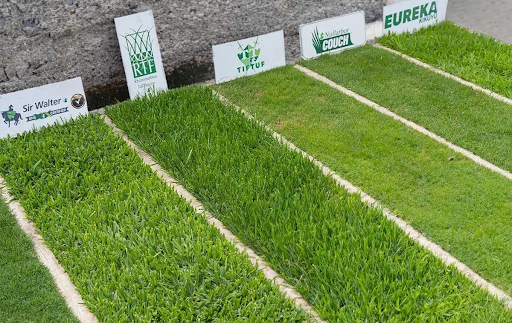Develop Childcare Skills with Early Years Apprenticeships
 Develop Childcare Skills with Early Years Apprenticeships
Develop Childcare Skills with Early Years Apprenticeships
When it comes to shaping young minds, there’s no substitute for hands-on experience. Early years apprenticeships offer you a unique pathway to dive straight into the world of child development, blending practical training with essential theoretical knowledge. It’s not just about earning a qualification; it’s about building real-world skills that prepare you to make a meaningful impact on children’s lives.
Whether you’re starting your career or looking to switch paths, these early years apprenticeships provide an accessible route to gain invaluable expertise while working in nurseries, schools, or childcare settings. You’ll not only learn how to nurture a child’s growth but also develop the confidence and competence to thrive in this rewarding profession.
Early Years Apprenticeships—A Look
Early years apprenticeships allow you to blend practical childcare experience with structured learning. Focusing on children from birth to the age of five, these programmes provide you with the tools to nurture young minds during their most formative years. Through a combination of work-based tasks and organised study, you can gain skills that directly influence a child’s emotional, social and physical development.
Engaging with real-world scenarios might challenge and refine your abilities. Working under supervision, you’ll learn to assess individual needs while fostering stable, supportive environments. This role isn’t solely about following instructions. It lets you contribute actively to cultivating curiosity and creativity in those under your care.
Formal qualifications such as Level 2 or Level 3 certifications come attached to these apprenticeships, but their value extends far beyond the titles. The work experience you gather could open doors within nurseries, schools or family-centred organisations. If you’re eager to develop rapidly and enjoy learning on the job, this path can prove invaluable.
Reflect on how these apprenticeships uphold both theoretical and experiential learning. Why does integrating these methods matter? You might conclude that hands-on insights ensure you’re prepared for challenges while establishing competence in behaviour management, health practices or educational play.
Think about the versatility this career path offers. Whether your aspirations lean towards mentoring families, shaping care policies or specialising in therapeutic education techniques, early years apprenticeships can act as a foundation. With every step, you’re equipping yourself to inspire confidence, foster connections and support growth during a critical phase in a child’s life.
Benefits Of Hands-On Child Development Training
Early years apprenticeships offer an immersive way to cultivate knowledge and capability in childcare. Through hands-on involvement, you engage more deeply with child development concepts, turning theory into tangible outcomes.
Practical Experience
Active participation in childcare settings helps you refine essential skills in real-time. As you interact with diverse children, you adapt to their unique needs, managing behaviour and supporting growth. Tasks such as organising play activities or observing developmental milestones let you connect learning to everyday situations. This approach enhances your understanding of foundational child development principles while giving you practical tools for working in nurseries or similar environments.
Building Confidence And Skillsets
Engagement with children in real-world scenarios strengthens your confidence in decision-making and problem-solving. Repeated practice with activities like planning learning schedules or guiding group dynamics sharpens your instincts, leading to improved communication. You develop key professional attributes such as teamwork, empathy, and resilience as you figure out daily challenges alongside mentors and peers. These skills set the stage for broader career growth within the childcare sector.
Structure Of Early Years Apprenticeships Programs
Early years apprenticeships focus on hands-on training combined with a structured curriculum to prepare you for diverse childcare roles. These programmes balance practical and theoretical elements, ensuring you can develop essential skills while fostering strong foundations in child development.
Key Components And Curriculum
During these apprenticeships, you engage in workplace learning supported by theoretical study. Core topics include safeguarding, child health, behaviour management, and planning developmental activities. Coursework often incorporates a focus on building relationships with children and their families. Assessments might involve practical observations, written assignments, or project work that demonstrates your understanding of child-centred practices. Programmes commonly align with recognised qualifications like Level 2 or Level 3 certifications, equipping you with robust knowledge to apply in-group or one-to-one care situations.
Role Of Mentors And Supervisors
Mentors and supervisors guide you throughout the programme, offering insights and constructive feedback as you gain experience. Their support can strengthen your decision-making, problem-solving, and leadership skills. Regular meetings may help track progress and address challenges in childcare settings. Supervisors often assist with translating theoretical knowledge into actionable practices, such as creating learning plans or resolving behaviour concerns. By fostering collaboration, they contribute to your growth, ensuring you’re confident in delivering quality care tailored to each child’s needs.
Challenges And How To Overcome Them
Early years apprenticeships can present unique obstacles, but understanding these challenges and proactive solutions helps figure out them effectively.
Balancing Work And Study
Managing work commitments while completing coursework requires focus and organisation. Childcare roles demand physical and emotional energy, which might leave you feeling stretched on busy days. Effective time management can ease the pressure when you create a realistic schedule to prioritise tasks. Use quiet periods for focused study, and seek opportunities to integrate learning with your day-to-day responsibilities. Developing a routine reduces stress and enhances productivity, ensuring space for both work tasks and academic deadlines.
Support Systems For Apprentices
Strong networks promote success during apprenticeships. Supervisors, peers, and mentors can guide you through difficult moments, sharing their insights and practical tips. Engaging in conversations with your mentor might bring clarity to confusing topics, while co-workers could offer strategies for handling child behaviour or challenging interactions. Participating in group discussions at workshops or online forums encourages collaboration and provides motivation. These connections foster resilience and build your confidence over time, creating a supportive environment in your journey.
Future Prospects And Career Opportunities
Early years apprenticeships open pathways to numerous roles in childcare and education. You can pursue positions such as nursery practitioner, teaching assistant, or preschool supervisor, each offering opportunities to apply your skills in dynamic environments. With experience, these roles might transition into leadership positions like nursery manager or early years coordinator, where you’ll oversee teams and develop programmes that shape young lives.
Further qualifications can expand your options. Achieving a Level 3 Early Years Educator status, for example, allows you to register as a childcare professional. Higher education, such as degrees in early childhood studies or education, could lead to careers as educational consultants or development specialists. You might find interest in creating policies that influence early years education on a broader scale.
Are you drawn to supporting families directly? You could step into roles like family support worker, providing guidance during challenging times. Alternatively, opportunities in social care might appeal, helping children in need of specialised assistance. These positions require compassion and adaptability, developed through your apprenticeship experience.
International roles present alternative avenues. Your skills in creating nurturing early learning environments might align with settings around the world, expanding your career globally. Specialist organisations often seek individuals with practical experience in early childhood development, offering chances to contribute to cross-cultural childcare initiatives.
If long-term advancement motivates you, consider opportunities in training or mentoring aspiring childcare professionals. By sharing your expertise, you’ll influence the next generation of practitioners, ensuring consistent excellence in the field.
What excites you most—the hands-on care, leadership potential, or academic growth? Early years apprenticeships create well-rounded professionals equipped for versatile career paths, letting you shape your future in a way that resonates with your strengths and aspirations. Difficult to choose? The foundation you’re building can lead to multiple fulfilling directions.
In Closing
Early years apprenticeships offer an invaluable opportunity to develop practical skills and theoretical knowledge while making a meaningful impact on young lives. By immersing yourself in real-world childcare settings, you gain the confidence and expertise needed to nurture children’s growth and creativity.
This pathway not only equips you for a rewarding career in childcare but also lays the groundwork for future opportunities in education, family support, and beyond. With the right support and dedication, you can build a fulfilling career that shapes the next generation while achieving your professional aspirations.







